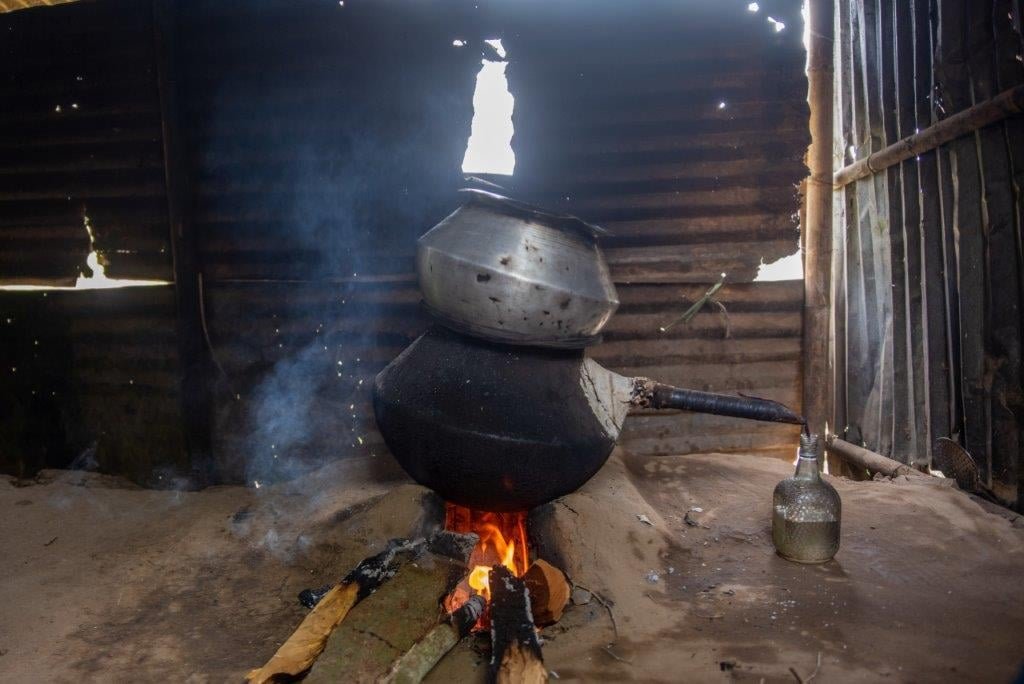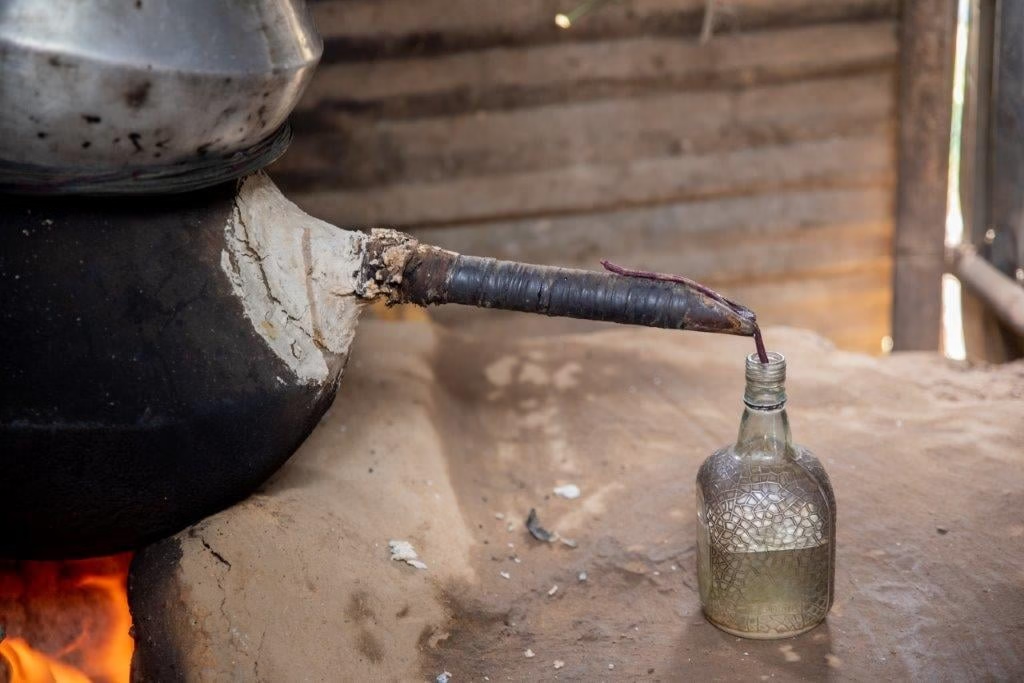The consumption of local alcohol in Tripura, a northeastern state of India, by the tribal population is a complex issue with various socio-economic and cultural factors at play. Here are some of the reasons why Tripura tribal people drink local alcohol:
- Availability: Local alcohol is easily available and affordable for the tribal people in Tripura. They can obtain it from local vendors or brew it themselves using traditional methods.
- Cultural and Traditional Practices: The tribal people in Tripura have a long history of consuming local alcohol as part of their cultural and traditional practices. It is often consumed during social and religious events.
- Lack of Access to Legal Alcohol: Due to the remote location of many tribal communities, they may have limited access to legal alcohol. This can lead them to consume local alcohol as a substitute.
- Poverty and Unemployment: Many tribal people in Tripura live in poverty and face unemployment, leading them to turn to local alcohol as a way to cope with their difficult circumstances.
-
Lack of Awareness about Health Risks: There is a lack of awareness among many tribal people about the harmful health effects of consuming local alcohol, such as liver damage and addiction.

It is important to note that excessive consumption of local alcohol can have negative impacts on the health and well-being of the tribal people in Tripura. Efforts are being made by the government and NGOs to educate people about the health risks and provide access to safe and legal alcohol.
Tripura is a northeastern state of India with a significant tribal population. One of the distinctive features of Tripura’s tribal communities is their consumption of local alcohol. Local alcohol is a type of alcohol that is brewed using traditional methods and is often consumed during social and religious events. The consumption of local alcohol by the tribal people in Tripura is a complex issue with various socio-economic and cultural factors at play. In this article, we explore the reasons why Tripura tribal people drink local alcohol.
Availability and Affordability
One of the main reasons why the tribal people in Tripura drink local alcohol is its availability and affordability. Local alcohol is easily available in the markets, and many tribal communities brew it themselves using traditional methods. This makes it an accessible and affordable option for people who may not have access to legal alcohol due to their remote location or financial constraints.
Cultural and Traditional Practices
The consumption of local alcohol is deeply ingrained in the cultural and traditional practices of many tribal communities in Tripura. It is often consumed during social and religious events, such as weddings and festivals. Local alcohol is considered an integral part of their culture, and the consumption of it is seen as a way to connect with their roots and traditions.
Lack of Access to Legal Alcohol
Due to the remote location of many tribal communities in Tripura, they may have limited access to legal alcohol. The cost of transporting and distributing alcohol to these areas can be high, which can make it difficult for people to obtain it. This lack of access to legal alcohol can lead them to consume local alcohol as a substitute.
Poverty and Unemployment
Many tribal people in Tripura live in poverty and face unemployment, which can be a significant source of stress and anxiety. Drinking local alcohol can be seen as a way to cope with their difficult circumstances and temporarily forget about their problems.
Lack of Awareness about Health Risks
There is a lack of awareness among many tribal people in Tripura about the harmful health effects of consuming local alcohol. Excessive consumption of local alcohol can lead to liver damage, addiction, and other health problems. However, many people are unaware of these risks and continue to consume local alcohol without taking necessary precautions.
In conclusion, the consumption of local alcohol by the tribal people in Tripura is a complex issue with various socio-economic and cultural factors at play. Efforts are being made by the government and NGOs to educate people about the health risks and provide access to safe and legal alcohol. It is important to address this issue with a holistic approach that takes into account the cultural, economic, and health-related factors involved.

Pros:
- Helps in decision making: Examining the pros and cons of a situation can help in making informed decisions. It allows one to consider all the relevant factors and make a well-thought-out decision.
- Encourages critical thinking: Examining the pros and cons of a situation requires critical thinking and analysis. This can help in developing problem-solving skills and improving decision-making abilities.
- Provides a balanced view: Looking at both the pros and cons of a situation can help in gaining a balanced view. It helps in understanding the positives and negatives of a particular decision or action.
- Helps in evaluating risks: Evaluating the pros and cons can help in assessing the risks involved in a particular decision or action. It can help in making decisions that are more likely to have a positive outcome.
Cons:
- Can be time-consuming: Examining the pros and cons of a situation can be time-consuming. It requires careful analysis and evaluation, which can be a challenge in situations that require quick decisions.
- Can be subjective: The pros and cons of a situation can be subjective, as they may vary depending on the individual’s perspective and biases.
- Can lead to indecision: Examining the pros and cons of a situation can lead to indecision, as there may be an equal number of advantages and disadvantages to a particular decision or action.
- May not consider all factors: Examining the pros and cons of a situation may not consider all the relevant factors. Some factors may be overlooked or underestimated, which can lead to an incomplete analysis.
In conclusion, examining the pros and cons of a situation can be a useful tool for decision-making and critical thinking. However, it is important to be aware of the limitations and biases involved in this approach. It is essential to consider all relevant factors and not rely solely on the pros and cons when making important decisions.
AGULI STAFF DESK










